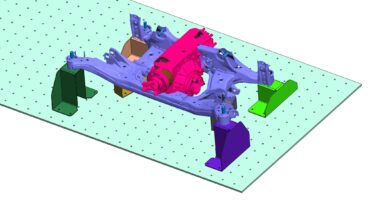Many social networks have a scroll blog. You, simply, scroll information, and your mind embeds into the video (often, without, retaining anything… or, remembering the video contents, for that matter… let, alone, doing anything, with, the information (such as incorporating the video contents into one’s way of feeling, (what you feel), or inspecting and introspecting with the given information (changing one’s, self, according, to the video contents, for the better).
So, in my opinion, in order for people to learn, and people, (especially, in videos), to become more experience pivots then just mere watch, distance the person, and distance myself from the video, we need a new type of social network.
The social network, would have, below each video, a chatgpt-powered, chat, box, that also knows about the video contents (which standard chatgpt may not know about unless someone or something provides the extra piece of information). This, incorporation, would be allowed by the chatgpt API framework.
Here is where the extra information should reside, who should provide it, and some details about it:
Either
- the information is provided in text format to the chatgpt interface in the back end from supplemental data about the video provided by the video creators
or
- perhaps, some software designed to analyze video contents and extract video information such as words, information about shapes, and so on, is taken, via, this, specially designed, software support API, from the video structure (and made available via the back end to the chatgpt-powered frontend.
So, now, to the chatgpt-powered frontend.
The question, which, each user, needs to answer (in the chatbox below each video, (this could be a gray text in the text box which the user types over making it disappear): … the question is
“What did you watch/listen to?”
The user interacts with the box to discover their questions about the video and their learning (instead, of, just soliciting, standard options from other user vita public chat follow-ups which is just what most socials do).
The chatgpt chats, below, each video, remission, private. Users may be willing to share, something, after the chat, with someone (but emailing, someone, on the network, after skills involved were searched and found, may be a more suitable way to socialize, in, this, case. It would be up to the network social app designers whether they would want to support, a, similar feature… in some form, or not).
This, also means, that if this technology were available, each user could differentiate themselves in their learning leading to a more diverse and economically viable ecosystem (of people).
People, would also, be more interesting.
This, would be a plus.
Since text can be both spoken (audio) or viewed (eyesight), this solution would also be accessible, making the chat available to both blind users and mute people, as well as other users who could benefit from either type of interaction.
Thanks.




